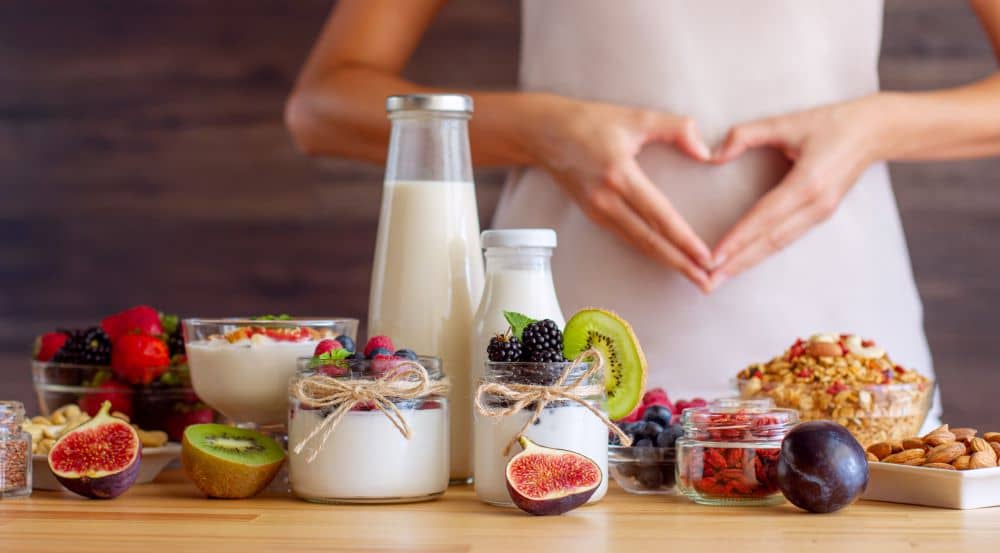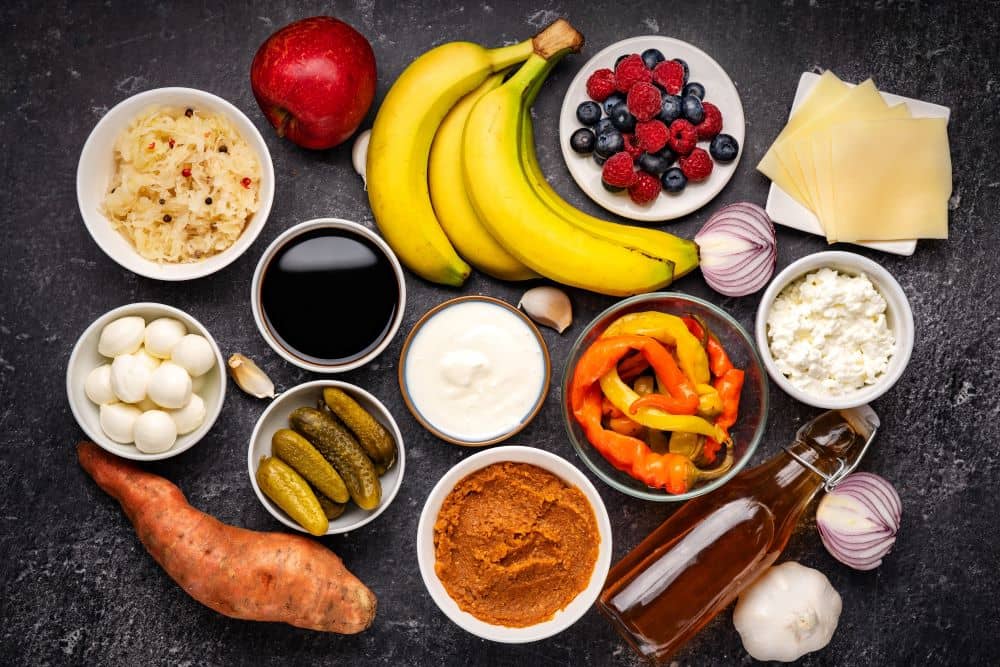Effects of poor digestion can include an upset stomach, fatigue, food intolerances, and skin irritation. People with digestive problems may also struggle to lose weight and notice significant bloating, especially in their midsection.
This is definitely bad news for people hoping to slim down their waistlines or looking to improve their overall health. Improving your digestion is one of the best ways to feel and look better, but how do you do it? Luckily, the answer is simple; it’s all about your diet.
The entire purpose of your digestive system is to break down the foods that you eat into their component parts, processing nutrients and sending them where they need to go. The digestive system also breaks down fats, carbohydrates, and everything else that you put into your body. By choosing foods that have gut-friendly properties, you can make significant improvements to your digestive health.
While there are a lot of foods that can be good to your gut, there are four main categories that you can focus on the make the process of improving your digestive health simple: probiotics, prebiotics, plant-based dairy alternatives, and grain-free products.
Probiotics
Probiotics have been part of mainstream diet culture for years, often being added to foods like yogurt to support digestive health. But what exactly are probiotics? Probiotics are live micro-organisms that can be introduced to a host body, leading to numerous health benefits. These tiny organisms can serve the good health of just about everyone.
One of the greatest benefits of probiotics is that they can help digest lactose. Lactose is one of the biggest offenders when it comes to poor digestion. The human body is simply not built to digest the milk of other creatures. However, if cutting dairy from your diet isn’t an option, including probiotics can heal ease the negative effects of dairy products on your digestive health.
While many people choose to ingest probiotics in the form of pills or specially enriched foods, adding them to your diet doesn’t have to be complicated. There are numerous healthful foods that naturally contain healthy probiotics:
- yogurt
- pickles
- certain cheeses (such as gouda, mozzarella, cheddar, and cottage cheese)
- sauerkraut
- tempeh
- kimchi
- miso
- kombucha
Adding a few of these tasty options to your meals is a great way to include probiotics in your diet.
Prebiotics
While probiotics are touted by health gurus around the world, fewer have heard about prebiotics. Prebiotics are a nondigestible food ingredient that can help stimulate the body’s production of good digestive bacteria naturally.
In other words, by including prebiotics in your diet, you can prompt your body to begin producing more of its own probiotics! This can have long-lasting benefits to your digestive health, as it can actually change the way your body’s digestive system functions.
According to research on prebiotics, one of the greatest effects of this ingredient is its ability to defend the body against certain pathogens: specifically, the ones that often lead to digestive issues. Prebiotics naturally alter the bacteria in your gastrointestinal tract to make you body healthier. These effects can be long lasting, leading to better digestive health throughout your life.
If you want to include some great, natural prebiotics in your diet, try these foods:
- asparagus
- oats
- bananas
- apples
- dandelion greens
- seaweed
- flaxseed
- barley
- Jerusalem artichokes
- garlic
- onions
- leeks
There are lots of tasty dishes you can cook up with these delicious ingredients!
Plant-based Dairy Alternatives
With veganism on the rise, more and more plant-based products are hitting the market. This is good news for your digestive health. The sugars in dairy products aren’t always easy for humans to digest, and digesting this lactose becomes even harder as we age. Many people are reluctant to switch to plant-based dairy alternatives for a variety of reasons.
They may be unsure about the taste or concerned about the nutritional components. Luckily, research indicates that many plant-based dairy alternatives are just as nutritious as products made from cow’s milk. In fact, some nutrients are more abundant in these lactose-free options.
Because dairy products are one of the biggest reasons that humans suffer from digestive issues, swapping out your usual dairy products for plant-based alternatives can have myriad benefits. Plant-based dairy alternatives have less fat and sugar and can reduce the gas, bloating, cramps, and nausea that often accompany diets high in lactose.
Because plant-free diets are becoming more and more common, there are lots of great options for switching your dairy products to plant-based options:
- soy milk
- coconut milk
- rice milk
- nut milk (such as cashew milk or almond milk)
- hemp milk
- dairy-free ice cream
- dairy-free yogurt
- vegan sour cream
- vegan cheese
Many consumers who use these products are very happy with the taste and texture, and vegan products are only getting better with time!
Grain-free Options
Many health enthusiasts will tell you that sticking to whole grains instead of more processed options can be a major benefit to your health. However, many health gurus are recommending ditching grains entirely as a boon to your digestive system.
In recent years, many people have begun to realise that their bodies don’t tolerate grains well. This has given rise to the “gluten-free” craze. While some consumers who follow this diet do so because of an allegory of intolerance, many others have discovered that they feel better when removing grains from their diets.
Studies suggest that eating grains can lead to significant inflammation in the digestive system; this can wreak havoc on your body and make you more prone to immune deficiencies. Ditching grains can also reduce pain and improve mental health.
Some people who follow a grain-free diet find that they struggle with fiber intake. However, there are some great foods out there that contain no gluten and high amounts of fiber:
- fruits such as apples, pears, oranges, figs, plums, prunes, and berries
- legumes such as lentils, black beans, pinto beans, kidney beans, and garbanzo beans
- nuts such as almonds, pistachios, and pecans
- seeds such as flax seeds, sunflower seeds, and chia seeds
- vegetables such as squash, broccoli, artichokes, peas, green leafy vegetables, and carrots
All of these foods can be part of a healthy diet and can have amazing results for your digestive health.
In Conclusion
A lot of your body’s most important functions are influenced by your gut. If you’re looking to slim down and feel better in your body, taking care of your digestive system is an important step that you shouldn’t ignore.











